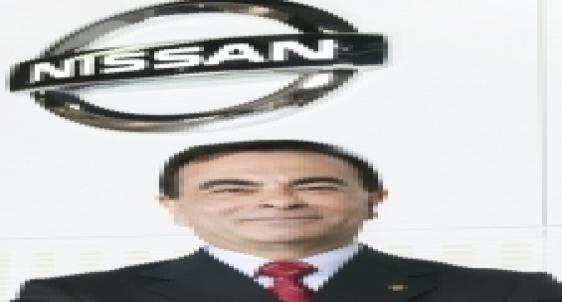
That's the wisdom coming from Carlos Ghosn, President and CEO of Nissan and Renault as he spoke for CNN's third Boardroom Master Class, an interview forum filmed in front of 250 students at the prestigious London Business School. The programme will be aired on CNN on Saturday, June 14, 2008.
One of the most closely watched CEOs in the business world today, Ghosn talks frankly about the responsibility he holds and challenges he faces in running such prestigious global brands.
Ghosn personifies globalization given his Lebanese parents, upbringing in Brazil and speaking five languages. He tells CNN how his background helps him manage a global workforce, before emphasizing to the London Business School students how they can exploit their diverse backgrounds: "…this diversity becomes a strength, becomes a leverage that I'm going to try to use to get better solution." When asked whether he would have enjoyed the success he has without his rich multi-cultural background, his answer is simple: "I don't think so."
Ghosn first garnered attention for his dramatic transformation of Nissan in 1999, when many saw the Japanese car maker on the brink of collapse. However, through drastic cost-cutting measures, Ghosn returned Nissan from 20 billion dollars in debt to profitability just one year later. It was a goal that he and his managerial team staked their jobs on. When asked the most important aspect of this turnaround, Ghosn says: "Give people back the confidence and the trust that they can do big things again."
The most difficult part of the turnaround was announcing the plan in October 1999 in front of the Japanese media: "A lot of people from outside the company were telling me, 'you can't do it… You're going to face so much resistance about it'. You're going to have to make your call based on some feedbacks of people that you trust inside the company. Your own convictions. Your own beliefs. Make the big leap and see what's going to happen. That's very tough."
Ghosn describes his own management style as: "committed, demanding but associative", adding that: "The most important basic attribute is capacity to connect with people." He continues to explain why the ability to listen and communicate is fundamental, "If you don't have this capacity to connect, I think you can be the most brilliant person, the smartest, the best expert, you're going to be handicapped by the fact that you'll not get the best out of the many people who are surrounding you."
Ghosn thinks the record run in oil prices may not be over, suggesting: "I think we have to prepare for more. I'm not sure it's finished. Anyway, as nobody is able to forecast, we need to be prepared as an industry to face a much higher price for oil in the following years."
And finally, perhaps the $64,000 question in business, what makes a good manager? "The best managers, the best leaders are…not the people who never fall. They'll fall but they'll jump immediately after. They'll try to get the lessons from what happened to them. They'll go further and they'll continue to stretch. These are always the most amazing people in your team."

























